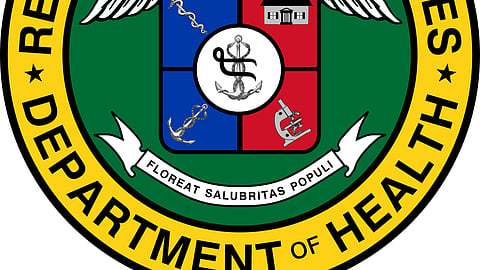
- NEWS
- the EDIT
- COMMENTARY
- BUSINESS
- LIFE
- SHOW
- ACTION
- GLOBAL GOALS
- SNAPS
- DYARYO TIRADA
- MORE

The Department of Health (DoH) on Wednesday declared a “code white alert” in all its Centers for Health Development nationwide due to the inclement weather and flooding caused by the southwest monsoon that was intensified by tropical storm “Carina.”
The DoH has instructed health units to monitor and report any untoward health incidents through the DoH Health Emergency Management Bureau (HEMB) integrated information system, which is linked to the HEMB Operations Center.
Additionally, the public was reminded of the health risk of leptospirosis which is associated with exposure to floodwaters.
Leptospirosis can be caught by wading through floodwaters or handling soil, mud or dirt after a flood, through exposed skin even if one does not have a visible wound.
Symptoms can take as long as one month to appear, though there are antibiotics available for prevention.
Those who had waded in floodwaters are advised to consult a doctor or health center within 24 hours.
“It’s better to avoid floodwaters and mud to prevent leptospirosis. For those who need to wade through, use knee-high boots,” DoH Secretary Ted Herbosa said.
“Immediately wash your body with clean water and soap afterward. Consult a doctor right away; don’t be complacent because symptoms may take a while to appear,” he added.
Number of cases
The DoH observed that as of 13 July, the total number of leptospirosis cases stood at 1,258.
The department warned that cases may rise due to late reports, especially with the recent weather events.
The following regions saw increases in leptospirosis cases from 2 June to 13 July: Zamboanga peninsula, Caraga, SOCCKSARGEN, Western Visayas, MIMAROPA, Eastern Visayas and Northern Mindanao.
A total of 133 deaths had been recorded due to leptospirosis as of 13 July.
Symptoms
Leptospirosis is a bacterial infection transmitted by many animals, such as rodents and other vermin.
The waste such as urine and feces of an infected animal, especially rats, contaminate the soil, water and vegetation.
Leptospirosis is a zoonotic disease (affecting both animals and humans) caused by the Leptospira bacterium found in contaminated water or soil.
Leptospira bacteria can enter the body through breaks in the skin or the eyes, nose and mouth.
Infected animal urine can mix with floodwater, which then comes into contact with people wading or playing in it.
Without treatment, leptospirosis can lead to kidney damage, meningitis (inflammation of the membrane around the brain and spinal cord), liver failure, trouble breathing and even death.
Leptospirosis symptoms include fever, vomiting, nausea, muscle pain and headache.
Some cases have distinct pain in the calf muscles and reddish eyes. Severe cases may have jaundice (yellowish body discoloration), dark-colored urine, light-colored stool, low urine output, and severe headache. Many of these symptoms can be mistaken for other diseases. Some people have no symptoms.
It generally takes two to 30 days to get sick after having contact with the bacteria that cause leptospirosis. Therefore, people must consult doctors immediately after being exposed in floodwaters as there is a preventive antibiotic prescription.
